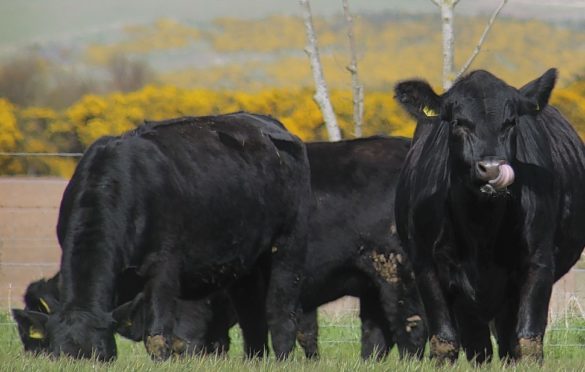The number of cattle on Scottish farms and crofts has reached its lowest level since the 1950s, according to figures in the latest farm census.
Results from the Scottish Government’s December Agricultural Survey reveal a 1.4% decline in cattle numbers to 1.71million, which is 3.5% lower than the 10-year average of 1.77million.
Beef cattle numbers were down 3,600 to 420,900, while the number of dairy cows decreased by 2,600 to 174,400.
The national sheep flock increased in size to 5.04million, while the number of pigs increased by 11% to 368,000. There was also growth in the poultry sector, with a 19% increase in broiler numbers thanked for the 7% increase in total bird numbers to 14.4million.
Winter cereals plantings were up 3.1% to 486,000 acres, with wheat acreage up 2.3% to 257,000 acres and barley up 0.8% to 128,000 acres.
The winter oilseed rape and oats areas were up 8% and 8.1% to 78,000 and 23,000 acres respectively.
There were decreases in the amount of grass silage and hay produced on commercial farms – down 7% and 15.3% respectively.
The figures also stated there were an estimated 41,000 tractors, 3,800 combine harvesters and 956 milking parlours on Scottish farms.
NFU Scotland vice-president Martin Kennedy said the decrease in beef cattle numbers highlighted the difficulty the sector faced in maintaining numbers.
“It shows the need for continued targeted support either directly or indirectly to the largest part of our industry,” said Mr Kennedy.
The union’s livestock committee chairman Charlie Adam blamed the reduction on higher costs, tighter carcase specifications and a reduction on the maximum value a carcase can achieve.
He said: “There isn’t enough profit, if any, in beef production without support. At current levels of support, it will take a lot more than efficiency improvements to change the fortunes of beef production – it needs market prices to rise substantially.”
Rural Economy Secretary Fergus Ewing said the figures showed the importance of targeted support and continued membership of the EU.
He said: “While the UK Government has offered some assurances on funding over the short-term, which we have committed to pass on in full, there are still more questions than answers in the longer-term, which is causing unnecessary concern and uncertainty among rural businesses and communities. This lack of certainty from the UK Government is making it hard for our farmers to plan accordingly, putting livelihoods and communities at risk.”
